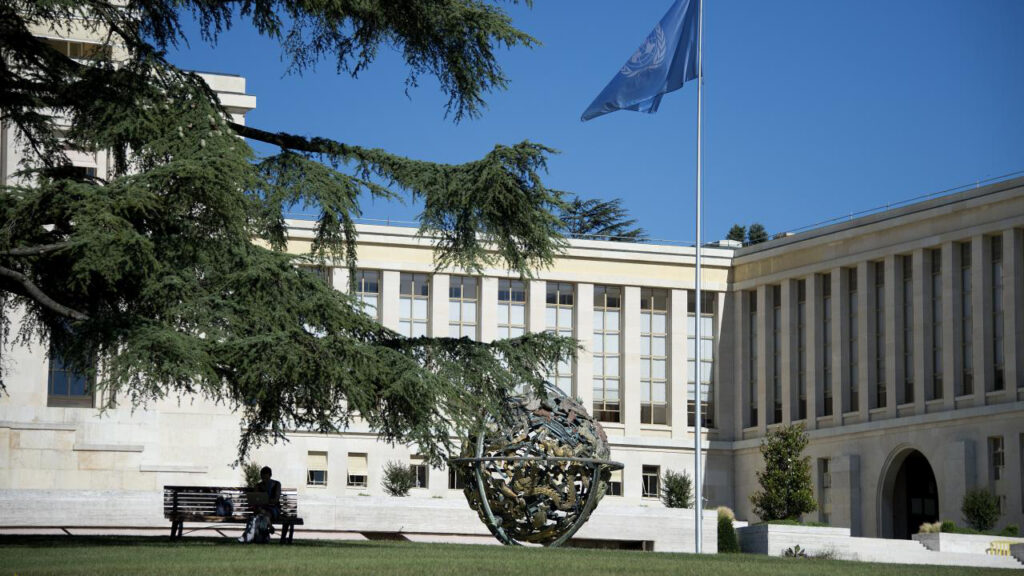The Human Rights Council convenes for its 60th session between 8 September and 8 October 2025. You can find all our statements delivered during this session below as they become available. Our past advocacy interventions are available here.
Item 4: General Debate – Mozambique (23 September)
A recent flare-up of insurgent attacks in Cabo Delgado has displaced 40.000 people, adding to the more than half a million internally displaced who continue to face widespread human rights violations. The decision to resume liquified natural gas projects in the region, and the prioritization of securing economic sites over protecting civilians, has created an untenable situation for civilians. In a joint statement, we urged the Council to monitor and provide regular updates on the situation in Mozambique. We also called on the government to ensure unimpeded humanitarian aid, protect civilians in accordance with international law, and regulate transnational corporations operating in the conflict areas.
Item 3: General Debate – Sri Lanka (18 September)
Six years after Surach Nilanga’s son was killed during the Easter Sunday attack at the Shangri-La hotel, he is still waiting for justice. In a joint statement at the Human Rights Council, he urged the Sri Lankan government to facilitate a thorough, independent, and speedy investigation with a view to ensuring accountability and to cooperate with international initiatives. Speaking in support of other victims, he also called for adequate and just reparations for families after a comprehensive economic, social, and psychological assessment.
Item 3: Interactive Dialogue on the Secretary General’s Report on a Just Transition (18 September)
Franciscans International welcomed the Secretary General’s report affirming just transition as a cornerstone of international environmental law, in line with the recent advisory opinion by the International Court of Justice. While valuing the human rights focus of the report, we stressed the need for a need for a deeper systemic critique and a vision of socio-ecological transformation beyond the current economic model that caused the climate crisis in the first place.
Item 3: Interactive Dialogue with the Working Group on Enforced or Involuntary Disappearances – The Philippines (16 September)
More than a decade since the adoption of the Anti-Enforced Disappearance Act, implementation remains grossly inadequate. Perpetrators remain shielded, and the disappeared remain unaccounted for. Under current administration, 54 enforced disappearances have been documented, mostly directed against activists and human rights defenders. In a joint statement, we called for the full and effective implementation of the act, support for victims and their families, and an end to impunity by holding State actors accountable.
Item 2: General Debate – Indonesia (10 September)
Recent demonstrations in Indonesia have been met a violent crackdown by security forces. Civil society estimates that there have been at least 3.000 arbitrary arrests and has documented inappropriate and excessive use of force, including unwarranted use of teargas and other less-lethal crowd-control weapons. This reaction reflects a broader authoritarian drift in Indonesia, as further symbolized by the proposed Indonesian Armed Forces Act. In a joined statement, we called on the government to comply with the UN Basic Principles on the Use of Force and Firearms by Law Enforcement Officials, investigate allegations of excessive use of force in an impartial manner, and hold perpetrators accountable.
Item 2: Interactive Dialogue with the High Commissioner for Human Rights – Sri Lanka (8 September)
Despite repeated promises of accountability, critical reports regarding the 2019 Easter Sunday attacks remain undisclosed to the public, raising serious concerns about transparency and justice. Welcoming the recommendations by the High Commissioner for Human Rights on accountability in Sri Lanka, we urged authorities to make the reports of all Committees investigating the attacks publicly available and expedite all related legal cases.
Thumbnail: UN Photo / Jean-Marc Ferré

